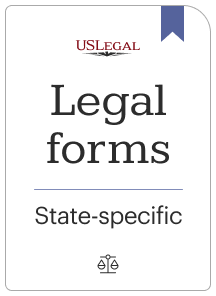

An Assignment of Judgment is used when one party wishes to assign his/her rights to a Judgment over to another individual. Such an assignment may be made for purposes of collection or in payment of a debt. Georgia Assignment of Judgment is a legal process that allows the transfer of rights to enforce a judgment from one party to another. This assignment typically occurs when the original judgment creditor wants to sell or transfer their interest in the judgment to another party, known as the assignee. The assignee then assumes all rights, entitlements, and responsibilities associated with enforcing the judgment and collecting the awarded amount. In the state of Georgia, the assignment of judgment is governed by both state statutes and common law principles. Georgia's law recognizes the transferability of judgments and provides a framework for this process. The Georgia Code, Title 9, Chapter 12, Part 2 outlines the specific provisions related to the assignment of judgments. The process of Georgia Assignment of Judgment begins with the execution of a written document, known as an Assignment of Judgment Agreement. This agreement includes pertinent details about the parties involved, such as the names and addresses of the assignor (original judgment creditor) and the assignee. It also encompasses crucial information regarding the original judgment, including the case number, court details, and the amount awarded. Once the Assignment of Judgment Agreement is executed, the assignee becomes the holder of the judgment and acquires the right to collect the awarded amount. They possess the authority to institute legal proceedings, such as filing garnishments, levying bank accounts, or initiating foreclosure actions, to enforce the judgment. In Georgia, there are no specific types of Assignment of Judgment outlined in the statutes. However, there are variations in the nature of judgments that can be assigned. These include monetary judgments resulting from lawsuits, as well as judgments arising from contract disputes, personal injury claims, business disputes, and other legal actions. Regardless of the type of judgment, the assignment process follows the same general principles and requirements. It is important to note that a valid Assignment of Judgment in Georgia requires compliance with all legal formalities and the satisfaction of any applicable notice requirements. Additionally, any defenses or counterclaims that were available against the original judgment creditor can also be raised against the assignee, except when the assignee acquires the judgment in good faith and for value, without notice of such defenses or counterclaims. In summary, Georgia Assignment of Judgment allows the transfer of rights and obligations from the original judgment creditor to the assignee. This process enables the assignee to enforce the judgment and collect the awarded amount. The specific guidelines for the assignment are outlined in Georgia's statutes, and it applies to various types of judgments arising from different legal disputes. Compliance with legal formalities is crucial to ensure the validity and enforceability of the assignment.
Georgia Assignment of Judgment is a legal process that allows the transfer of rights to enforce a judgment from one party to another. This assignment typically occurs when the original judgment creditor wants to sell or transfer their interest in the judgment to another party, known as the assignee. The assignee then assumes all rights, entitlements, and responsibilities associated with enforcing the judgment and collecting the awarded amount. In the state of Georgia, the assignment of judgment is governed by both state statutes and common law principles. Georgia's law recognizes the transferability of judgments and provides a framework for this process. The Georgia Code, Title 9, Chapter 12, Part 2 outlines the specific provisions related to the assignment of judgments. The process of Georgia Assignment of Judgment begins with the execution of a written document, known as an Assignment of Judgment Agreement. This agreement includes pertinent details about the parties involved, such as the names and addresses of the assignor (original judgment creditor) and the assignee. It also encompasses crucial information regarding the original judgment, including the case number, court details, and the amount awarded. Once the Assignment of Judgment Agreement is executed, the assignee becomes the holder of the judgment and acquires the right to collect the awarded amount. They possess the authority to institute legal proceedings, such as filing garnishments, levying bank accounts, or initiating foreclosure actions, to enforce the judgment. In Georgia, there are no specific types of Assignment of Judgment outlined in the statutes. However, there are variations in the nature of judgments that can be assigned. These include monetary judgments resulting from lawsuits, as well as judgments arising from contract disputes, personal injury claims, business disputes, and other legal actions. Regardless of the type of judgment, the assignment process follows the same general principles and requirements. It is important to note that a valid Assignment of Judgment in Georgia requires compliance with all legal formalities and the satisfaction of any applicable notice requirements. Additionally, any defenses or counterclaims that were available against the original judgment creditor can also be raised against the assignee, except when the assignee acquires the judgment in good faith and for value, without notice of such defenses or counterclaims. In summary, Georgia Assignment of Judgment allows the transfer of rights and obligations from the original judgment creditor to the assignee. This process enables the assignee to enforce the judgment and collect the awarded amount. The specific guidelines for the assignment are outlined in Georgia's statutes, and it applies to various types of judgments arising from different legal disputes. Compliance with legal formalities is crucial to ensure the validity and enforceability of the assignment.